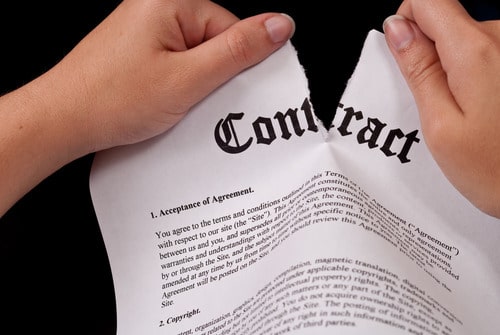
What is consumer fraud?

What is a class action lawsuit?Unfortunately, there are many different ways you can be harmed by consumer fraud. If you buy something that does not work as advertised, or if you are purposefully overcharged for the item, you have suffered consumer fraud. You may also be harmed by a fraud scheme, such as paying for sweepstakes winnings or internet actions and receiving nothing in return. Finally, identity theft is also considered consumer fraud.
A class action suit is one where many plaintiffs suffer the same injury and decide to have their cases tried together against the defendant. Class actions are a useful tool for individuals who feel they have been wronged but who might not consider hiring a lawyer on their own, perhaps because the small amount of money in. For instance, if you purchased a magazine subscription from a door-to-door vendor but never received any magazines, you may have been a victim of consumer fraud. Since you only spent $10 or $20 on the subscription, though, you might not go to the trouble of suing the seller. If you are part of a class action, though, a lawyer can try your case along with all other similarly defrauded consumers with very little participation from you.
When is a class action the best type of lawsuit for my consumer fraud case?
There are three main considerations that must exist for a class action to be the right format for your case:
- Numbers – there must be enough other people who suffered the same harm. This is often true with consumer fraud cases because the defendant will typically perform the same fraud on many individuals.
- Common problem – all the people harmed must have the same legal issues against the defendant. This is also typical in consumer fraud cases because each person suffers the same type harm due to defendant’s fraud.
- Adequate representation – the lawyer must show that a class action will be the best way to represent the class of plaintiffs. This can be particularly true with consumer fraud cases – since each plaintiff was defrauded in the same way, combining all the cases is a good way to represent everyone.
What are the responsibilities of the lead plaintiff?
A class action suit can have hundreds or even thousands of plaintiffs; however, only one is the “lead plaintiff.” Generally, the lawyer will pick a lead plaintiff whose situation does a good job representing all the plaintiffs, and who will be able to testify well as a witness at trial. The lead plaintiff will have more responsibilities than the other plaintiffs, but may get a bigger reward as well.
If you are the lead plaintiff, in addition to testifying at trial, you will be deposed before trial. A deposition is a meeting of up to three hours where the defense attorneys can ask you questions. You would also have more meetings and phone calls with your lawyers than the other plaintiffs. As lead plaintiff, your name will be listed on the lawsuit, and you will likely receive a larger monetary award or settlement than the other plaintiffs in recognition of the extra time you spent on the case.
What should I look for in a class action attorney?
It is important to find an attorney that has a long history with class action suits. There are many state and federal rules that apply to class action only; a lawyer who is not familiar with these regulations could cause you to lose your case just by missing a deadline or procedure. In addition, you must find a class action attorney who has a proven record of success with consumer fraud. Finally, no matter what area of law, you should be sure your lawyer communicates with you truthfully and treats you with respect and consideration.
How much does a class action attorney cost?
Class action lawyers usually work on a contingency fee basis. This means your attorney will not get paid until you receive a monetary award or settlement. The amount your attorney receives can depend on several factors including the number of plaintiffs involved in your case, the riskiness of the case and the expected financial settlement at the end. A typical contingency fee for your lawyer is 30% of the award or settlement.
It makes sense that a class action lawyer would work on a contingency basis. In a class action, many plaintiffs do not even know they are involved in a case until the lawyer notifies them. It would be much more time consuming, and perhaps even impossible, for the lawyer to wait for all the plaintiffs to hire and pay him or her before beginning work on the case.











Hi I have been scammed by Nigeria.n s umbags. Refinancing my house. Sending wire transferes in the thousands to three different people in the US to get sent to Lagos Nigeria. .
Can you please help me?? Is there a class action you are doing?
I can. Be reached @ 520- 780-2333. Please call me. Widowed. And grief the thief took over.